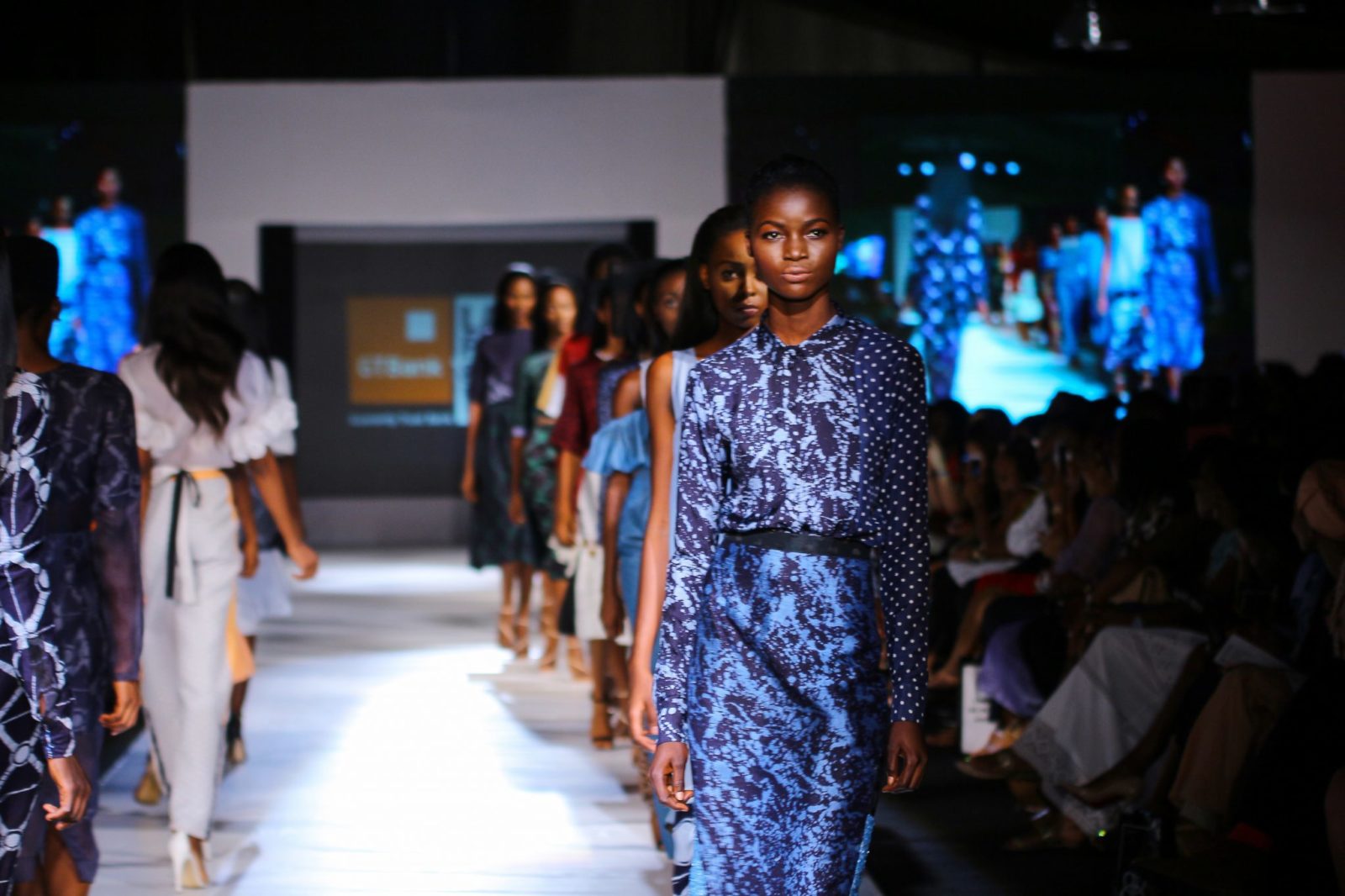The end of last year saw a mix of patrons, celebrities and fashion professionals from around the world descended on upscale Victoria Island for the GTB Lagos Fashion and Design Week 2013 (LFDW). In the front row were the founders of luxury retailers Luisa via Roma (Andrea Panconesi) and Browns (Joan Burstein), buyers from Bergdorf Goodman and Barneys, and publications including ELLE, Paper and Grazia. All were there to view collections by some of Nigeria’s most talented designers such as Maki Oh, Jewel by Lisa, Iconic Invanity and Tiffany Amber.
This event is not a first. Suzy Menkes, fashion editor of the International Herald Tribune, attended LFDW 2012 and declared: “The time for Nigeria is now. The development of a middle class means that a larger number of people are able to upgrade from basic necessities to luxury brands.”

British luxury department store Selfridges also sent a delegation and hosted the Nigerian fashion pop up, Ndani, in association with LFDW founder Omoyemi Akerele. In her words: “The fashion industry is very much in its infancy here. Ndani gave the designers more exposure abroad, that way they will be better appreciated locally.” The lawyer-turned-fashion consultant established LFDW in 2011 and is riding the crest of the ever-rising wave of interest in Nigeria’s fashion industry.
So why all the buzz? Nigeria has one of the highest growth potential economies in Africa. With a population of nearly 170 million and its youthful inhabitants enjoying rapidly rising discretionary incomes, it should not come as a surprise that there is a large market for fashion. Nigeria’s apparel market is estimated to be worth over $7 billion according to Euromonitor, and it has been growing at 13% per annum. However, many wealthy Nigerians still tend to shop overseas for their apparel needs. Global Blue reported that Nigerians ranked third, ahead of Americans, but are behind Middle Easterners and Chinese in apparel retail spending in the United Kingdom.
Loading...
There are also many other challenges facing local designers. They struggle with a lack of manufacturing facilities, inadequate infrastructure, textile import bans and very little governmental support. Most find it difficult to produce a consistent product of high standards within the timeframe and price range required to fulfill significant overseas orders. However, some have proven to be up to the task and are quickly developing a name abroad.
“There is a lack of skilled labor, general mediocrity and often a lack of appreciation of our tradition and culture,” says Maki Osakwe, the young designer behind Maki Oh. The label has captured the attention of celebrities like Solange Knowles, Leelee Sobieski and Michelle Obama.
“I am true to myself and am always striving towards perfection while keeping my heritage alive,” she continues.
Her designs are stocked at Maryam Nassir Zadeh, a New York City-based emporium. The local landscape is changing rapidly and there has certainly been an influx of international fashion brands coming into Nigerian malls, a boon to the country’s burgeoning marketplace. Euromonitor estimates that the number of international retailers opening outlets in Nigeria is growing at 36% a year and apparel is one of the leading categories. Lagos has seen the opening of high-end stores Ermenegildo Zegna, Hugo Boss, MAC and mid-range apparel players such as Foschini as well as mass-market chain outlets like Mr. Price. The much-anticipated Alara, Nigeria’s first concept store, opened its doors in late 2013. Designed by critically-acclaimed architect David Adjaye, the store changed the face of retail in Nigeria by bringing authenticity and world-class aesthetics.
![]()
E-commerce is another way many are overcoming the real estate and infrastructure restrictions in the country. There are new online retail models tailored to the environment. Internet retailers Konga and Jumia offer payment on delivery options, since most Nigerians are still skeptical about paying online. Additionally, 5th and Quansah, a luxury apparel and accessory e-tailer, offers personal shopping and styling appointments in Lagos.
“Aside from economic growth, what fascinates people are the colors, textures and newness of the collections shown in Nigeria,” says 5th and Quansah founder, Nana Serwah Kankam about international interest in the Nigerian fashion industry.
“Nigerian women are stylish and trendy, proudly owning their own perspective on fashion. I don’t think you see this so often in the world. They are well aware of the global trends, confidently weaving them in with local influence.”
The apparel value chain is quickly developing and the future of Nigerian fashion seems to be very bright. With thoughtful government policies to support investment in the sector, perhaps the country will see indigenous fashion businesses serving the population and maybe even a Mercedes-Benz-sponsored Nigerian fashion week in the not too distant future.
Loading...
